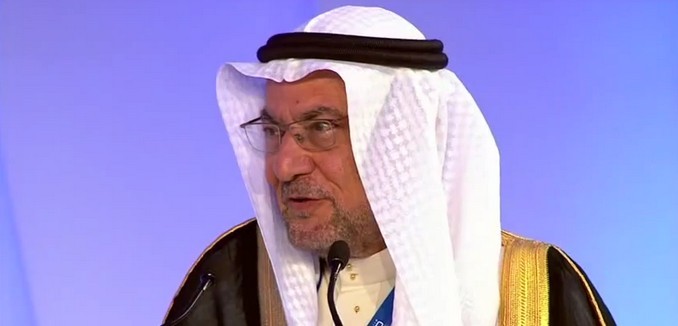On Monday, the Secretary General of the Organization of Islamic Cooperation (OIC), Iyad Madani, paid a rare visit to Jerusalem’s Al-Aqsa Mosque, announcing what he termed an “Islamic Tourism Year” in the holy city.
Madani is a citizen of Saudi Arabia, whose government does not have formal diplomatic relations with Israel and views itself as the guardian of Islam’s most important sites – Mecca and Medina. Muslims consider the Al-Aqsa Mosque to be Islam’s third-holiest site.
Pinhas Inbari, a consultant and a senior researcher at the Jerusalem Center for Public Affairs, observed (Hebrew link) that Madani’s visit to Jerusalem exposed some of the internal struggles within Sunni Islam, and the limits of the Qatari reconciliation with Egypt, Saudi Arabia and the Gulf States.
The call for Islamic tourism in Jerusalem challenges the positions of Hamas and the Muslim Brotherhood, which call for a boycott of tourism in Israel under the pretext that this (tourism) is an expression of “normalization” with Israel and rejection of the military struggle to liberate Jerusalem, for it is impossible to conduct attacks in Jerusalem if it has a large masses of Muslim tourists. Egypt supports the position of the Palestinian Authority that the struggle for Jerusalem should be done in part through massive tourism, which will emphasize the centrality of Jerusalem to Islam and help the Palestinians in the city to “hold out” financially.
However, the visit also revealed some cracks in the new reconciliation between Qatar and Egypt. The Al-Jazeera TV network, based in Qatar, attacked the visit and highlighted the Hamas position against it. The network interviewed Sheikh Raed Salah, the head of the northern branch of the Islamic Movement in Israel, who voiced harsh criticism of Palestinian Authority president, Mahmoud Abbas. This means that the agreement between Qatar and the other Arab states does not include the Palestinian issue and Israel, and Qatar continues to be an agitating factor in the Middle East.
Inbari argues that just as Egypt has pressured Qatar to stop propagandizing against it, Israel, too, must tell Qatar “that it will not tolerate subversion within its territories,” by the Gulf state.
Ties between Egypt and Qatar deteriorated after Abdel Fattah al-Sisi succeeded Mohammad Morsi, whose Muslim Brotherhood movement was backed by Qatar. Qatar repeatedly denounced the overthrow of Morsi and still provides shelter for some Brotherhood leaders who fled Egypt. The ouster of Morsi, led to a diplomatic spat pitting Qatar against Saudi Arabia, the United Arab Emirates (UAE) and Bahrain, with only Qatar supporting the ousted president. However, at a regional summit in November hosted by Riyadh, Qatar finally joined its Gulf neighbors in supporting Egypt under Sisi.
[Photo: Tatay Ash / YouTube ]




